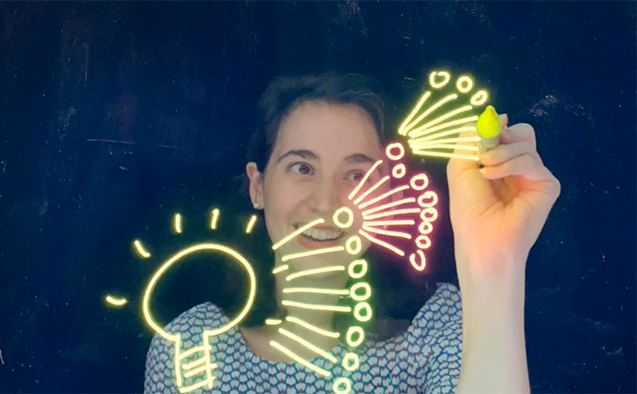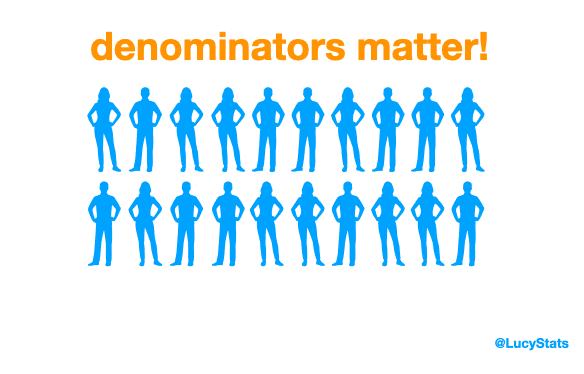Reports on breakthrough COVID cases causing confusion about vaccine effectiveness

Highlights
- Lucy D’Agostino McGowan, a trained biostatistician, uses statistical tools to bring clarity to risks related to COVID-19.
- She has published op-eds in USA Today and been featured on network news outlets and BBC Radio.
- Follow her on Twitter @LucyStats
Statistics professor Lucy D’Agostino McGowan is taking aim at misconceptions about the number of COVID-19 breakthrough cases and vaccine effectiveness.
“We need to flip the conditional and look at the proportion of breakthrough cases among all vaccinated rather than among all infected.” Statistics professor Lucy D’Agostino McGowan
Reports on infection percentages emphasize the wrong denominator – the bottom number in a fraction. As a result, people may feel overly alarmed by the number of fully vaccinated people who are turning up among the infected.
“Breakthrough cases can and do happen, and the delta variant is certainly presenting new challenges, however when looked at correctly we see that the risk of severe illness is reduced for vaccinated individuals; the best thing you can do to keep yourself and your community safer is get vaccinated.
Rather than reporting the percent of people who have gotten Covid-19 or been hospitalized among vaccinated people, the reporting tends to focus on the flip – the percent of vaccinated people among those who have gotten Covid-19 or been hospitalized. One is useful for thinking about vaccine effectiveness and the other isn’t. The vaccines are very effective but reports are not making this clear.”

Another statistical concern is the challenge of comparing two populations.
“In this case of breakthrough COVID-19 cases there could be things about the vaccinated population that makes them more vulnerable, such as age or pre-existing conditions,” D’Agostino McGowan explains. “There are also things that likely make the unvaccinated more vulnerable, perhaps riskier behavior, that could be driving some of the numbers as well. To make claims about the effectiveness of the vaccines we need to make apples-to-apples comparisons by controlling for these other factors.”
D’Agostino McGowan is trained as a biostatistician; she uses statistical tools to answer medical questions, often working with interdisciplinary teams of epidemiologists and clinicians to help answer important public health questions. She has been sharing her expertise on the pandemic since its early stages, including op-eds on “Why the ‘COVID-19 killed only 6%’ argument is wrong” (Sept. 2020) and “How to protect yourself and others from spreading COVID-19 at Thanksgiving dinner” (Nov. 2020) that appeared in USA Today.
Visit her blog, Live Free or Dichotomize, for more insights from D’Agostino McGowan.
Categories: Experts, Research & Discovery
Wake Forest News
336.758.5237
media@wfu.edu
Meet the News Team
Headlines
Wake Forest in the News
Wake Forest regularly appears in media outlets around the world.




